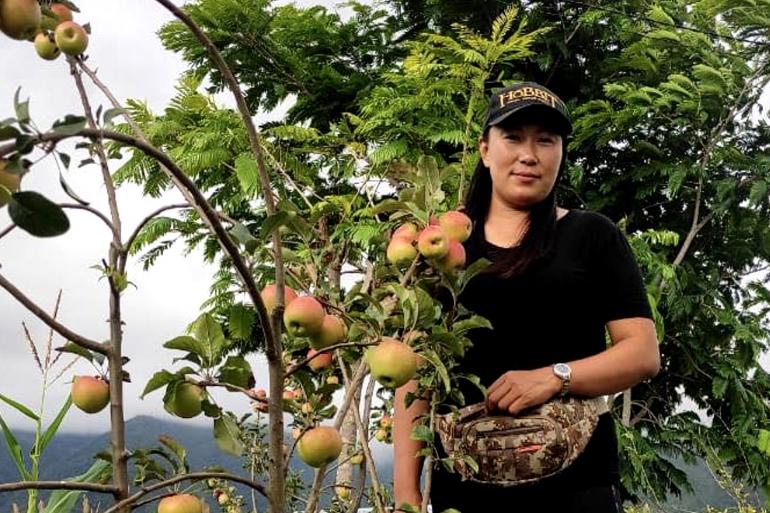Former executive grows apples, changes farming in Indian highland village

Apples are still a luxury in the highlands of Manipur State in India, but a former executive of a multinational company, Miss Augustina Shimray, came back from Delhi to change all that.
Inspired by a Soso Shaiza, a former member of the National Commission for Women, Shimray left Delhi to live in the middle of nature and start an apple plantation in her native village of Poi in Ukhrul District of Manipur.
The village is close to India’s border with Myanmar and the climate and the soil are right for growing apple trees. There had been attempts before to have an apple plantation in the area, but no one really made a living out of it, supposedly because of many factors, including climate.
If the village of Poi can now harvest apples, it’s not because of the soil or the climate. The state now supports the project with better agricultural technology, soil management, plant disease detection facilities, and even distance learning for farmers. And the bottom line is the passion for high-yielding fruit trees such as apple.
Shimray started with 55 saplings out of which 52 trees produced fruit, yielding as much as 130 kg of apple. She is bracing to harvest another 70 kg soon.
Another apple enthusiast, Ringphami Thingshung from Hungpung, planted 90 saplings out of which 85 yielded fruit within two years.
Following the example of Shimray and Thingshung, many farmers are now rolling up their sleeves to plant apple saplings.
Apples will soon boost Manipur’s economy in the hill districts aside from rice, pineapple, and banana.
Shimray, a Catholic, has since changed the face of her village. She has become an example to villagers of sacrifice (when she left her post as manager of a company in Delhi) to settle back in her humble village of 380 households.
Now, she is part of the North Eastern Region Community Resource Management Project that train farmers from Manipur and Mizoram in apple tree plantation.
Radio Veritas Asia (RVA), a media platform of the Catholic Church, aims to share Christ. RVA started in 1969 as a continental Catholic radio station to serve Asian countries in their respective local language, thus earning the tag “the Voice of Asian Christianity.” Responding to the emerging context, RVA embraced media platforms to connect with the global Asian audience via its 21 language websites and various social media platforms.














